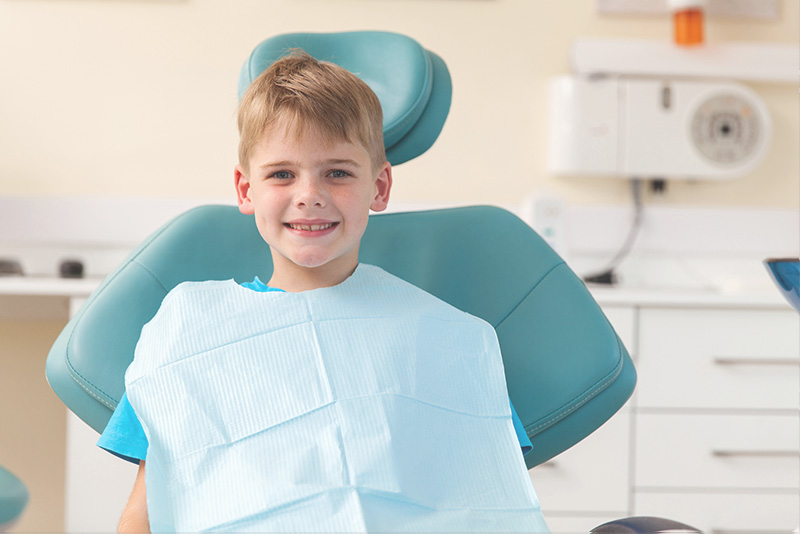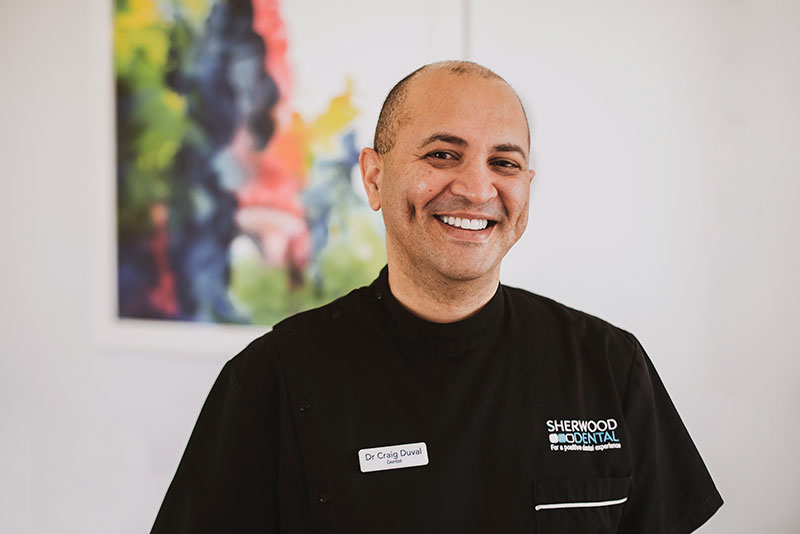Introducing your child to dentistry
Regular check-ups are important in the early years of childhood, to prevent tooth decay (cavities) and develop good oral hygiene habits. Healthy baby teeth give children a great chance of healthy adult teeth, which they can hopefully keep for life.
Regular check-ups can start from around three years of age, often on a 12-monthly basis at first. Once children are older, this may change to 6-monthly. Many parents of young children had bad dental experiences in their childhood, or heard horror stories from their own parents. This can lead to fearing and avoiding the dentist as an adult, and putting up with tooth and gum problems because of it. We believe that having fun, positive dental experiences will prevent this, and benefit children for the rest of their lives.

Your child’s initial examinations will be informal to start, their first appointment will normally consist of:
- A quick examination of their mouth, showing them using our dental mirror
- Looking for any potential signs of decay
- Counting your child’s teeth with them
As your child’s confidence grows when visiting our Sherwood dental practice our dental professionals will then begin to carry out a more thorough examination.
During your child’s check-up our dental professionals will look at the following:
- Which particular teeth have erupted, otherwise known as coming through the gum, on the lower and upper aches
- Examining the correct development of the jaw
- Assessing the soft tissues, including the tongue, cheeks, lips and throat
- Checking for decay or the early stages of cavities in the teeth
As your child gets older and their dental arches further develop, we will assess how the two arches bite together in order to check if orthodontics may be required later on. During these appointments we will often discuss and provide advice about:
- Preventive care
- Healthy diet and foods and drinks to avoid
- Brushing or flossing techniques
- Fissure sealants in instances where there are deep pits and grooves in the molars
- Fluoride treatments
Dental care at home
Oral hygiene can start before your child’s first tooth even erupts through the gum – this is normally around six months of age. Before your child’s teeth have erupted our dental professionals will suggest that parents use a clean damp cloth to lightly rub and child their baby’s gums.
Once the teeth have erupted, we suggest using a small and soft bristled child’s toothbrush, accompanied by a rice sized amount of children’s tooth paste. It is important to use children’s toothpaste as these products normally contain less fluoride than adult tooth pastes – if you are unsure or concerned about the fluoride content please speak to our dental professionals so we can suggest you the most appropriate toothpaste.
We suggest that your child brushes their teeth twice a day – once in the morning and before bed, cleaning all of the teeth and the gums. You may need to clean your child’s teeth or at least supervise until they have reached around 8 years old. Generally, we encourage that you teach your child to spit the toothpaste out but not to rinse with water as this can reduce the effects of fluoride.
We normally suggest that parents do not allow their child to fall asleep with a bottle of milk, formula milk or fruit juice as these drinks can have hidden sugars which if left on the teeth can pool around the teeth as they sleep, potentially causing decay. It can also be advantageous to reduce the amount of sugars in your child’s diet.
If your child’s teeth are prone to developing tooth decay in their baby teeth then our dental professionals may recommend a fluoride treatment as this can help to strengthen the tooth surface. Eventually as the adult teeth erupt through the gum, we may advise that a protective layer is bonded to the tooth’s biting surface, which is called a fissure sealant.
Here at our practice our Sherwood Dental dentists and supporting team strive to make children feel comfortable as we help them achieve a healthy smile.
Ask Dr Craig Duval
Our friendly team is here to help!

